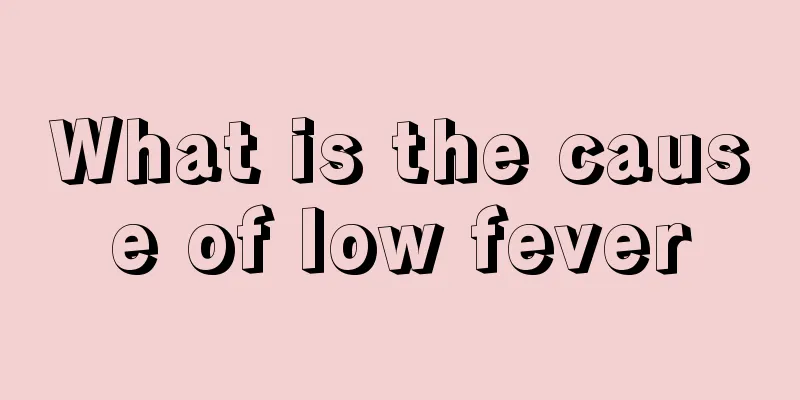Can you still eat cherries if they turn black?

|
Although cherries are delicious, they have a short shelf life. In my country, cherries are only available in summer. Due to their short shelf life, cherries will turn black after a period of time. So can we still eat cherries that turn black? Of course they cannot be eaten, as this means the cherries have gone bad. Not only do they have no nutritional value, but they may even produce various bacteria. If people eat them, they may cause enteritis or stomach problems, so throw away the blackened cherries decisively. Can you still eat cherries that have turned black? Cherries themselves have a short shelf life and will deteriorate or turn black after being picked or left overnight. It is best not to eat spoiled cherries because some people may get diarrhea after eating them due to individual differences. Therefore, if you encounter blackened cherries, it is not recommended to eat them, and you should also be careful when storing cherries. How to keep cherries fresh? 1. Cherries are a special fruit that likes low temperatures. After purchasing cherries, you should put them in the refrigerator for refrigeration in time, and ensure that the relative humidity is above 90%. In this case, cherries can be stored for 30 days without deterioration. If it is stored in large quantities, it should be wrapped in paper first, then pre-cooled and stored in a cold storage. It can be stored for several months without deterioration. 2. Storing cherries under reduced pressure is also an important way to keep them fresh. After buying cherries, you can put them in a well-sealed container, use a syringe to extract the air inside, and then seal the extraction hole with tape. Evacuate the air every ten days. This way, the cherries can be kept fresh for several months. 3. If you want cherries to stay fresh for a longer time, you should be careful when choosing cherries. You must buy plump and slightly hard cherries. Also look at the stems of the cherries. If the stems are relatively fresh, it means that the cherries were harvested recently and can be kept fresh for a longer time. If the stems are withered, it means that the cherries are no longer fresh. No matter what you do after buying them home, you cannot keep them fresh for too long. What happens if you eat too many cherries? You should not eat too many cherries because in addition to containing a lot of iron, they also contain a certain amount of cyanogenic glycosides. Eating too much can cause iron poisoning or cyanide poisoning. Regular consumption of cherries can make your skin rosy and white, remove wrinkles and spots, and maintain your complexion. However, cherries contain a lot of iron, and eating too much can cause poisoning. Cherries are warm in nature, so people with fever or cough due to deficiency of heat should avoid eating them. 1. Cherries are warm in nature, so people with fever or cough due to deficiency of heat should avoid eating them. Eating too much can easily cause getting a sore throat. 2. Cherry kernels contain cyanogenic glycosides, which produce hydrogen cyanide after hydrolysis. Be careful of poisoning when using them for medicinal purposes. 3. Be careful of poisoning, because in addition to containing a lot of iron, it also contains a certain amount of cyanogenic glycosides. If you consume too much, it will cause iron poisoning or cyanide poisoning. If you feel uncomfortable after eating too many cherries, you can use sugarcane juice to clear away heat and detoxify. 4. People with ulcer symptoms should eat it with caution; people with diabetes should avoid eating it. 5. Kidney patients should be careful, as the high potassium content in cherries cannot be underestimated. Every 100 grams contains 258 mg of potassium, which is not a small number for kidney patients. If a patient with kidney disease loses the ability to regulate water and electrolytes, the patient will experience oliguria and edema. When there is oliguria, potassium retention may occur due to reduced potassium excretion. If the patient eats too many cherries, he will develop hyperkalemia. When blood potassium is >6.5 mmol/L, the patient's heart may stop beating within seconds to minutes. Therefore, hyperkalemia can be said to be the "invisible killer" of chronic kidney disease. |
<<: What are the benefits of cherries for the skin
>>: Can antiphospholipid syndrome be cured
Recommend
What are the symptoms of early descending colon cancer
What are the symptoms of early descending colon c...
How to remove oil stains on paper without an iron?
Paper is something that people use very widely. I...
The medicinal value of the cricket
Chinese medicine has a long history and is the cr...
What are the diagnosis and examination methods for lung cancer? These two types of food are suitable for lung cancer patients
Lung cancer is a terrible disease. Only the patie...
What kind of care should be paid attention to after cerebral hemorrhage surgery
Nowadays, more and more people suffer from diseas...
How to disinfect a washing machine
Most people have a washing machine at home, but i...
Will severe rhinitis cause nosebleeds?
People with rhinitis cannot smell irritating odor...
The reason why black moles hurt a little
Moles are extremely common to us, and everyone ha...
How long can you live with stage II uterine cancer
How long can patients with uterine cancer live in...
How to keep bangs from sticking to forehead
Bangs can not only make a person more lively and ...
Skin care steps before bedtime
In daily life, more and more female friends pay s...
What should I do if I have an acute attack of gallstones
If gallstones occur acutely, of course, timely tr...
Is gastric ulcer serious?
The human stomach is actually also distributed wi...
Scientific explanation of sleep paralysis
Many people may have encountered the phenomenon o...
How to cure motion sickness?
Motion sickness is a common problem for many peop...









